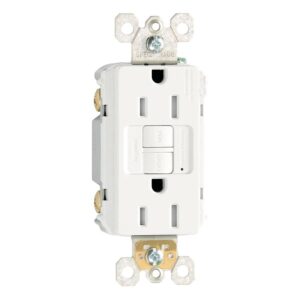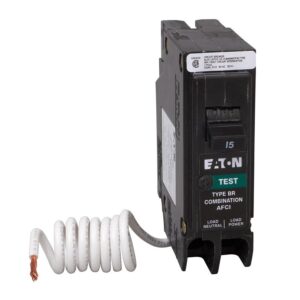What is a GFCI
Ever see those outlets with test and reset buttons on them? That’s a GFCI. A ground fault circuit interrupter (GFCI) can help prevent electrocution. If a person’s body starts to receive a shock, the GFCI senses this and cuts off the power before he/she can get injured.
GFCIs are generally installed where electrical circuits may accidentally come into contact with water. They are most often found in kitchens, bath and laundry rooms, or even out-of-doors or in the garage where electric power tools might be used.
The technical mumbo jumbo is, the GFCI will “sense” the difference in the amount of electricity flowing into the circuit to that flowing out, even in amounts of current as small as 4 or 5 milliamps. The GFCI reacts quickly (less than one-tenth of a second) to trip or shut off the circuit.

An important reminder: Many times, bathrooms will be interconnected to one reset, often times, in the powder room. If you have no power in your upstairs bathroom, check for a reset in other bathrooms. Exterior outlets and kitchen outlets may be interconnected as well.
What is an AFCI
An arc fault circuit interrupter (AFCI) is a product (usually as a type of breaker in the electrical panel) that is designed to detect a wide range of arcing electrical faults to help reduce the electrical system from being an ignition source of a fire. In newer construction, you’ll likely see them in the electrical panel (with a reset button). They were originally required for bedroom circuits (2002) but were in time expanded to many other circuits (2015).
So what is an arc? When an electric current crosses an air gap from an energized component to a grounded component, it produces a glowing plasma discharge known as an arc. For example, a bolt of lightening is a very large, powerful arc that crosses an atmospheric gap from an electrically charged cloud to the ground or another cloud. Just as lightning can cause fires, arcs produced by domestic wiring are capable of producing high levels of heat that can ignite their surroundings and lead to structure fires.
